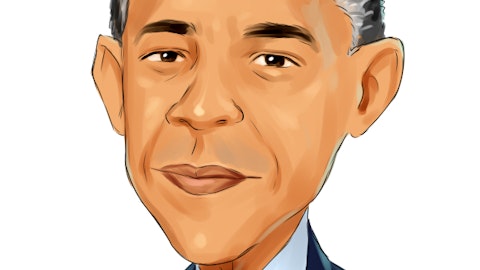In addition, Buffett’s children have long known they would never inherit their father’s wealth as he plans to give around 99% to five charities, with more than three quarters going to the Bill and Melinda Gates Foundation. The remainder, then, is currently split between four other organizations, including one named for his first wife and three charities run by his children.
But before you assume that means Buffett’s kids really are getting his money, remember all of that dough is meant to help better other people’s lives, not their own.
In fact, in talking about his own “inheritance” of roughly $90,000 in Berkshire Hathaway Inc. (NYSE:BRK.B) stock back in 1979, Buffett’s son Peter elaborated on his dad’s thoughts on wealth in 2011:
My dad didn’t believe in misallocated capital and he didn’t believe in inherited wealth. The Berkshire Hathaway Inc. (NYSE:BRK.B) stock was my big head start and it was kicked in my head that it would be all I would get. People wrongly assume we [kids] get piles of money from our dad. […] I watched someone who transferred values to me, and not wealth.
Myth No. 4: On taxes, Buffett must have a hidden agenda
Finally, many people call Buffett a hypocrite for giving the vast majority of his fortune to charity — tax free — while at the same time supporting both the estate tax and increases in taxes on the wealthy.
New Jersey Governer Chris Christie, for one, demonstrated this common confusion last year with his angry assertion that, rather than talking about reforming taxes to shift more of the burden to the wealthy, Buffett “should just write the check and shut up.”
The thing is, it’s not that hard to understand why these seemingly contradictory actions can peacefully coexist, as Buffett later explained in reaction to Christie’s comment:
It’s sort of a touching response to a $1.2 trillion dollar deficit, isn’t it? […] The real problem is we’re taking in too little money and we’re spending too much. That’s not going to be solved by voluntary contributions. What we need is a policy, a tax policy.
Bottom line: Buffett’s right that even his vast fortune, if donated in its entirety to the government, would barely put a dent in the massive national deficit. In addition, even if he were to do so, it’s unlikely that other wealthy individuals would follow suit, making it a fruitless gesture compared to its potentially wide-reaching philanthropic effects.
If, on the other hand, the government were to require higher taxes for wealthy folks like Buffett, you can bet the end result would be much more potent.
What’s more, remembering he is not passing significant wealth to his children for their own benefit, Buffett made his position on the estate tax clear when he signed a document stating he believes it is “right morally and economically” because it “promotes democracy by slowing the concentration of wealth and power.” In short, he says, dropping the estate tax would wrongly enable the ability to “command the resources of the nation based on heredity rather than merit.”
Foolish takeaway
In the end, think of Buffett what you will, but the facts speak for themselves. That’s why I’m convinced Buffett is simply one honest billionaire who happened to become rich by effectively playing by the same set of rules we all have.
The article 4 Warren Buffett Myths Debunked originally appeared on Fool.com and is written by Steve Symington.
Fool contributor Steve Symington owns shares of Markel. The Motley Fool recommends Berkshire Hathaway and Markel. The Motley Fool owns shares of Berkshire Hathaway and Markel.
Copyright © 1995 – 2013 The Motley Fool, LLC. All rights reserved. The Motley Fool has a disclosure policy.





